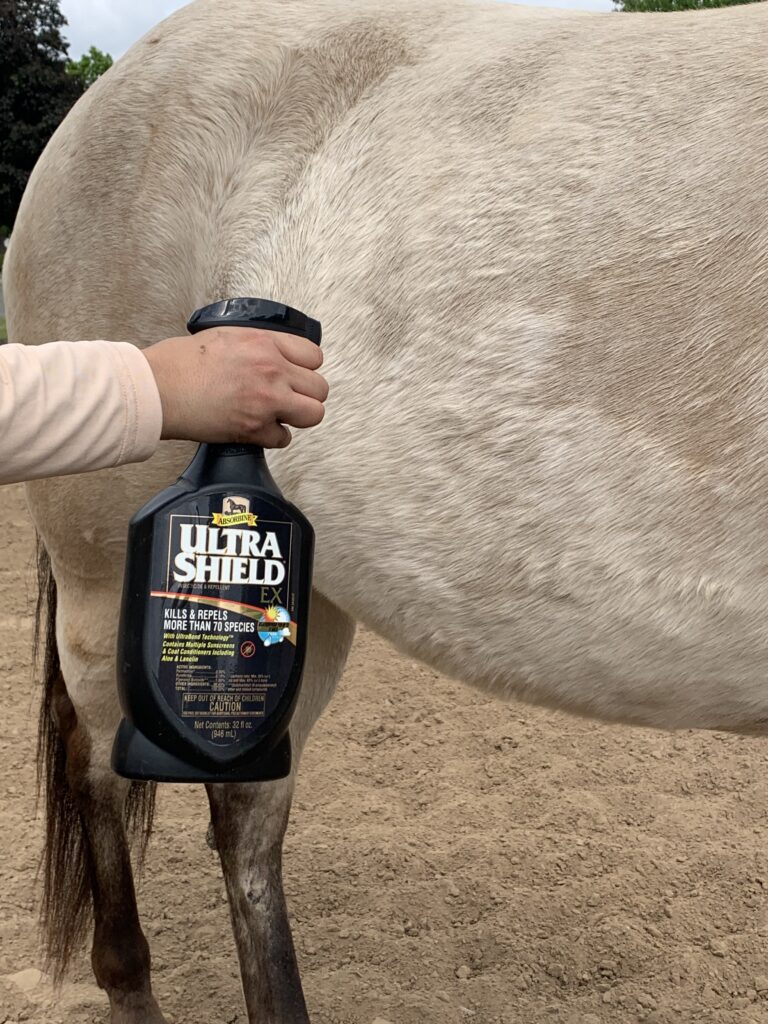
To help your fly spray or other insect repellent do its work of keeping biting insects away from your horse both safely and well, follow these guidelines to apply fly spray correctly:
•Start with a clean horse. Curry and brush well to remove loose hair and dirt before applying repellent.
•Read the manufacturer’s instructions and follow them. Makers of some spray-on insect repellents advise brushing hair against the direction of growth as you spray. Some instruct you to wear protective goggles and long sleeves while applying the product, or apply the repellent outdoors rather than inside the barn. Some manufacturers also specify how much of the product you need to use in one application for effective repellency.
ALSO: Be sure to shake the bottle well before each application—the ingredients sometimes settle on the bottom. And don’t store the fly spray in direct sunlight (even from a barn window), as sunlight will break down the active ingredients.
•If you are applying insect repellent to your horse before riding him, tack him up beforehand. If you spray his entire body and then tack up, heat and pressure in the saddle area can make the chemicals in the repellent even more irritating to his skin.
•Avoid spraying your horse’s head, which risks getting the product in his eyes. Instead, spray the product on a soft cloth and wipe it gently under his eyes—but not above them. For extra protection to the ears (if you’re not using a fly bonnet), gently massage fly-repellent cream inside his ears. Alternatively, use a roll-on product under his eyes and around his ears. Roll-on formulas are also useful for ringing a wound.
•Follow manufacturer’s label guidelines for frequency of use. If you choose a long-acting product (such as a concentrated pour-on formula) designed to be applied every few days, avoid “doubling up” with additional applications of a spray-on product based on similar ingredients. If your horse needs additional protection, herbal repellents are safe to use frequently and to apply in addition to products based on pyrethrin and pyrethroids. [Read more: What’s in a fly spray label?]
And now you know the right way to apply fly spray!









